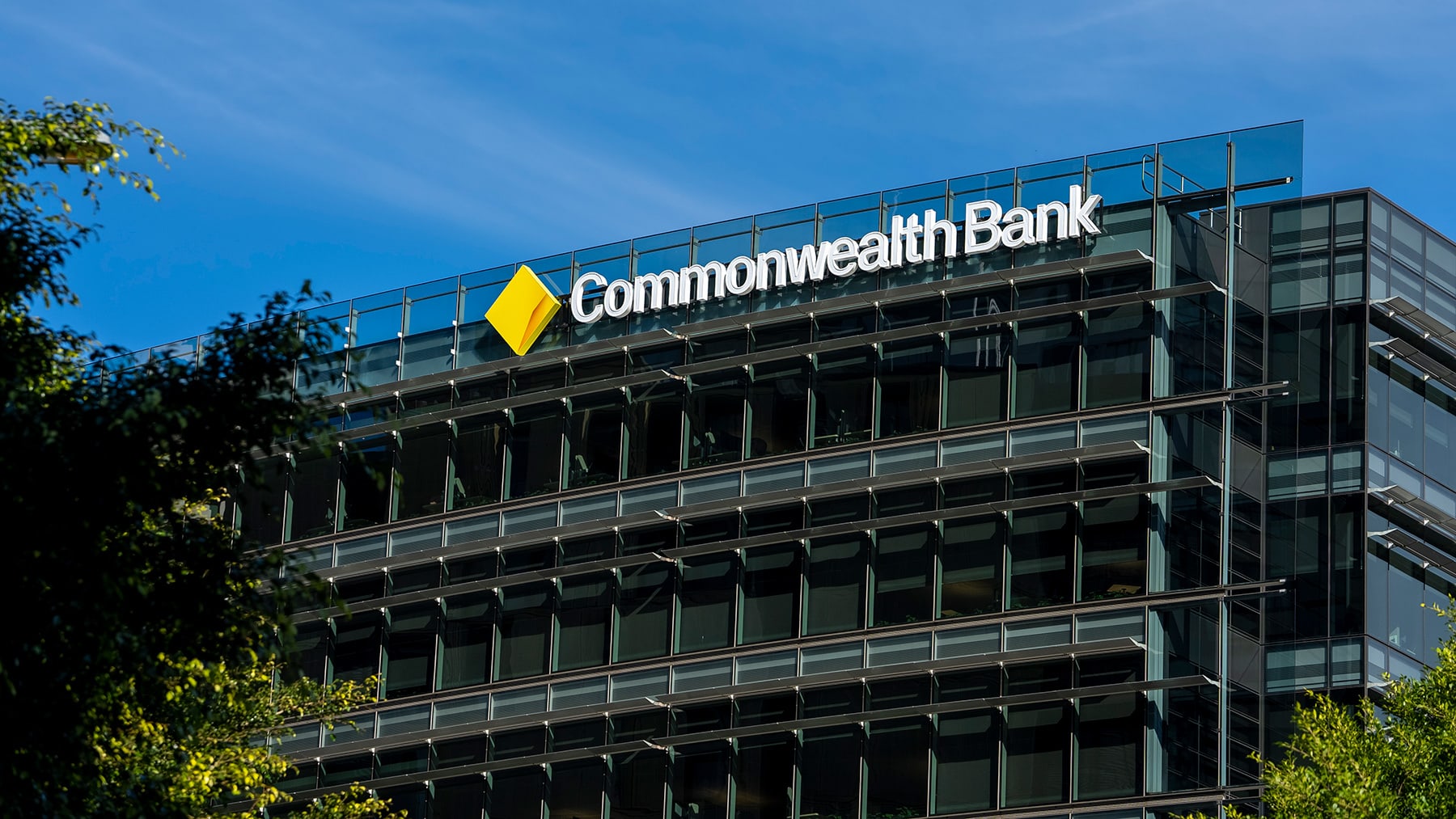Borrow
Digital banking boom catalysed by COVID-19
A recent report from FIS has shown that Australians are rapidly moving towards digital transactions, with almost 30 per cent said to have engaged in a new banking relationship with a financial institution or non-bank service provider during the COVID-19 pandemic.
Digital banking boom catalysed by COVID-19
A recent report from FIS has shown that Australians are rapidly moving towards digital transactions, with almost 30 per cent said to have engaged in a new banking relationship with a financial institution or non-bank service provider during the COVID-19 pandemic.

The move towards new relationships has come alongside an acceleration towards digital transactions — the pandemic has encouraged 36 per cent of respondents to increase their use of QR codes when shopping in-store and 24 per cent to increase their use of contactless payments.
The trend to abandon “old ways” of banking has been characterised by the younger generations, with 52 per cent of Gen Zs and 63 per cent of young Millennials noting in a recent FIS survey that they have started a new banking relationship in the past 12 months.
The same was only true for 11 per cent of Baby Boomers.
Furthermore, 89 per cent of young Millennials interviewed own a mobile wallet, versus 35 per cent of Baby Boomers.

Ninety-nine per cent of the young Millennials who were said to have owned one have used it in the past 30 days.
Across the board, a key motivator was the desire for better benefits, with 31 per cent of respondents citing this as their key reason for entering new banking relationships.
However, the increased willingness to move towards digital banking relationships seen among younger generations was shown to also come from a position of need. Sixteen per cent of young Millennials said they are most in need of access to real-time payments immediately, with 26 per cent admitting this was at least needed within six months.
FIS said that the results of the study demonstrated how banking and non-banking institutions will need to prioritise optimal digital experiences to capitalise on an evolving market.
“Australian consumers have responded to the pandemic by seeking better banking experiences and are now prioritising digital,” said Adrian Toynton, banking solutions head at FIS.
“As competition in the banking sector intensifies — with new tech-savvy entrants winning market share and consumers quick to enter into new banking relationships — it is absolutely critical for banks to offer a compelling customer experience from the get-go.”
As the pandemic continues, it has become increasingly apparent that the trend towards digital banking and payments is here to stay — only 7 per cent of respondents indicated they were gradually returning to the “old ways” of banking.
Breaking this up demographically, FIS highlighted the importance of focusing on how younger consumers will continue to bank following the pandemic — 13 per cent of Baby Boomers said they were likely to return to conducting transactions in branches, whereas only 2 per cent of Gen Z and 4 per cent of young Millennials indicated the same.
“To retain and win new customers, banks must modernise their platforms and harness advanced technologies, including cloud and API-enabled banking, to provide a seamless, always-on experience,” said Mr Toynton.
“Banks should also keep finger on the pulse of the habits and preferences of Gen Zs and young Millennials, who are undoubtedly a crucial demographic that will determine what next-gen banking looks like moving forward.”
The changing nature of the Australian banking payments landscape has recently prompted the federal government to conduct a new review of the system at large.

Banking
ANZ’s company-borrower mortgage clampdown: a risk reset with wide spillovers for SMEs, investors and non-banks
ANZ has tightened credit settings for home loans where the borrowing entity is a company — a narrow policy change with broad commercial consequences. It signals a shift in risk appetite across ...Read more

Banking
CBA’s investor-loan win signals a new phase in Australia’s mortgage machine
Commonwealth Bank’s outperformance in investor mortgages isn’t just a leaderboard moment; it’s a proxy for who owns the next growth leg in a broker‑led, increasingly digital mortgage marketRead more

Banking
A divided Big Four signals a two-track 2026: how to profit from rate uncertainty
Australia’s largest banks can’t agree on where the cash rate lands in 2026 — a split that matters more than the number itself. When the price of money is ambiguous, strategy becomes a game of ...Read more

Banking
Brokers own the mortgage funnel: Why a 77% share is reshaping bank strategy in Australia
Australia’s mortgage market has quietly consolidated around one gatekeeper: the broker. With brokers facilitating roughly 77% of new home loans, distribution power has migrated from bank branches to ...Read more

Banking
Commonwealth Bank leads consideration while People First Bank tops satisfaction in YouGov’s latest rankings
In a revealing snapshot of Australia's banking landscape, the Commonwealth Bank (CBA) has emerged as the most considered financial institution among prospective customers, according to YouGov's ...Read more

Banking
End of the easing: what a major bank’s call signals for Australian balance sheets
A major Australian bank now argues the Reserve Bank’s rate-cut run has hit a pause, resetting the risk-free rate narrative across corporate Australia. The Reserve Bank of Australia’s latest Statement ...Read more

Banking
Open banking, real returns: How an Australian brokerage turned CDR data into deal velocity
Open banking is no longer a whiteboard theory—it’s a working growth engine. This case study unpacks how a mid-sized Australian brokerage (“Pink Finance”) operationalised Consumer Data Right (CDR) data ...Read more

Banking
Open banking’s quiet revolution: how one broker’s data play rewrites speed, trust and margin
Open banking is shifting from compliance cost to commercial engine, and early adopters in Australia’s broking market are already monetising the curve. The playbook: consented bank-grade data piped ...Read more

Banking
ANZ’s company-borrower mortgage clampdown: a risk reset with wide spillovers for SMEs, investors and non-banks
ANZ has tightened credit settings for home loans where the borrowing entity is a company — a narrow policy change with broad commercial consequences. It signals a shift in risk appetite across ...Read more

Banking
CBA’s investor-loan win signals a new phase in Australia’s mortgage machine
Commonwealth Bank’s outperformance in investor mortgages isn’t just a leaderboard moment; it’s a proxy for who owns the next growth leg in a broker‑led, increasingly digital mortgage marketRead more

Banking
A divided Big Four signals a two-track 2026: how to profit from rate uncertainty
Australia’s largest banks can’t agree on where the cash rate lands in 2026 — a split that matters more than the number itself. When the price of money is ambiguous, strategy becomes a game of ...Read more

Banking
Brokers own the mortgage funnel: Why a 77% share is reshaping bank strategy in Australia
Australia’s mortgage market has quietly consolidated around one gatekeeper: the broker. With brokers facilitating roughly 77% of new home loans, distribution power has migrated from bank branches to ...Read more

Banking
Commonwealth Bank leads consideration while People First Bank tops satisfaction in YouGov’s latest rankings
In a revealing snapshot of Australia's banking landscape, the Commonwealth Bank (CBA) has emerged as the most considered financial institution among prospective customers, according to YouGov's ...Read more

Banking
End of the easing: what a major bank’s call signals for Australian balance sheets
A major Australian bank now argues the Reserve Bank’s rate-cut run has hit a pause, resetting the risk-free rate narrative across corporate Australia. The Reserve Bank of Australia’s latest Statement ...Read more

Banking
Open banking, real returns: How an Australian brokerage turned CDR data into deal velocity
Open banking is no longer a whiteboard theory—it’s a working growth engine. This case study unpacks how a mid-sized Australian brokerage (“Pink Finance”) operationalised Consumer Data Right (CDR) data ...Read more

Banking
Open banking’s quiet revolution: how one broker’s data play rewrites speed, trust and margin
Open banking is shifting from compliance cost to commercial engine, and early adopters in Australia’s broking market are already monetising the curve. The playbook: consented bank-grade data piped ...Read more








